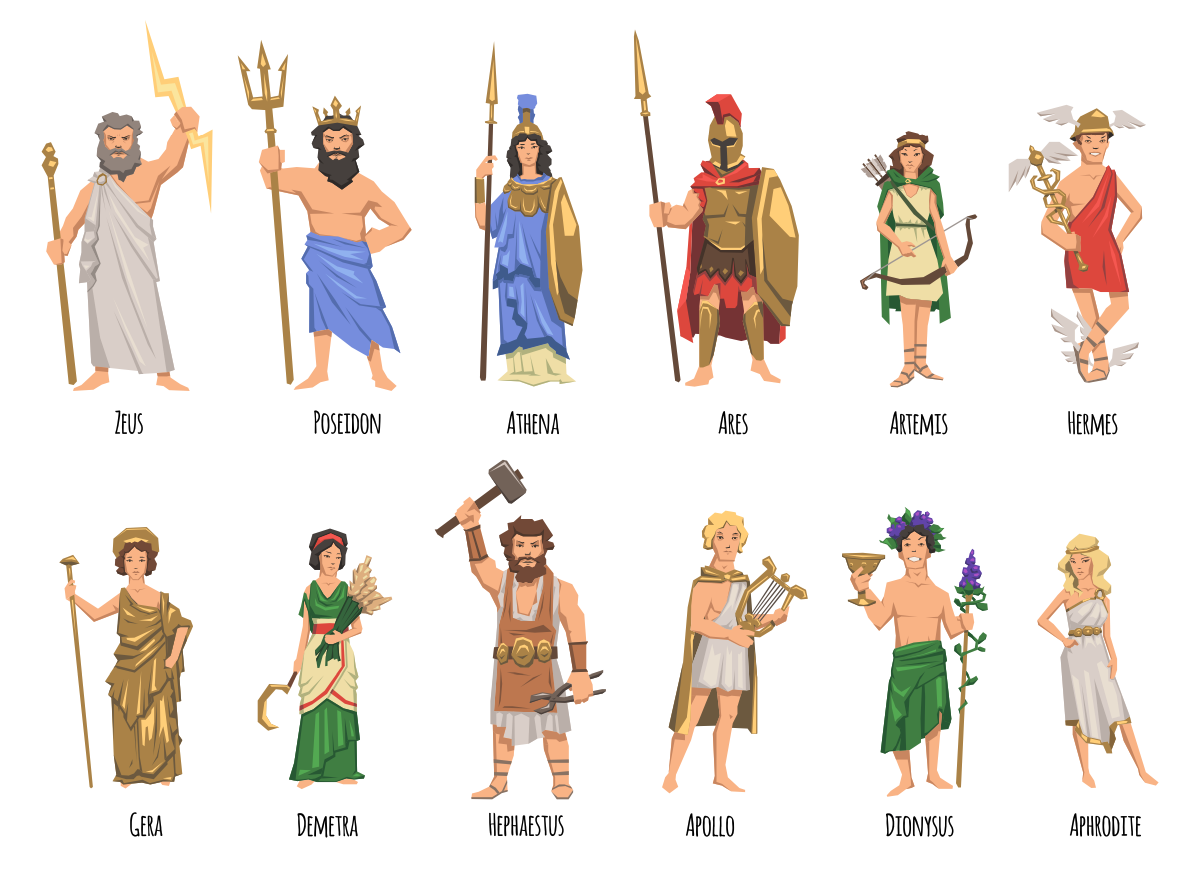To the Greeks, religion was so embedded within society that it influenced every aspect of daily life. Religion was practical: it helped people in birth, at puberty, through marriage, and at death. It was also democratic, as aristocratic cults came to shape public calendars.
Nearly all Greeks expected of their gods two great boons: prophetic advice and healing. To obtain advice one visited the shrine of an oracle or consulted with seers; for healing one decorated the shrines of the appropriate gods, quite often bringing an image, made of clay, of the bodily organ that required healing. One also sought healing by passing a night in the temple of the god, hoping that the god would appear in a dream and effect a cure.
The citizens of a polis had special devotion for the divinity who had founded it-Athens for Athena, Sparta for Zeus-though they worshiped the other gods as well, and all worshiped the goddess of the hearth, Hestia, the protectress of home and fireside. Poleis therefore grouped together in special devotion to regional shrines-the temples of Apollo at Delphi and of Zeus at Olympia and at Dodona. The Olympic Games specifically honored Zeus; they were followed by others held in honor of Apollo at Delphi and of Poseidon, the sea god, on the Isthmus of Corinth.
Two important cults began outside the ordinary worship of the Olympian gods: that of Demeter at Eleusis near Athens, and that of Dionysus. Demeter was the goddess of fertility and of the harvests. Her daughter by Zeus, Persephone, was snatched away by Hades, the god of the underworld, and had to spend a third of the year with him-the months of barrenness, late autumn and winter. Every spring she returned, and the fields became fertile again.
Dionysus, the god of vegetation, fertility, and wine, originated in Boeotia, in north-central Greece, and stood for seasonal fertility in its more openly sexual aspects; his celebrants originally carried phalluses in his procession, and were often dressed as goats. In its original form the cult inspired its followers with a wild dancing frenzy in which they ate the flesh of living animals and so acted out the eating of the god himself. The cult was tamer in Athens, where phallic songs were written for the festival, held every two years.

